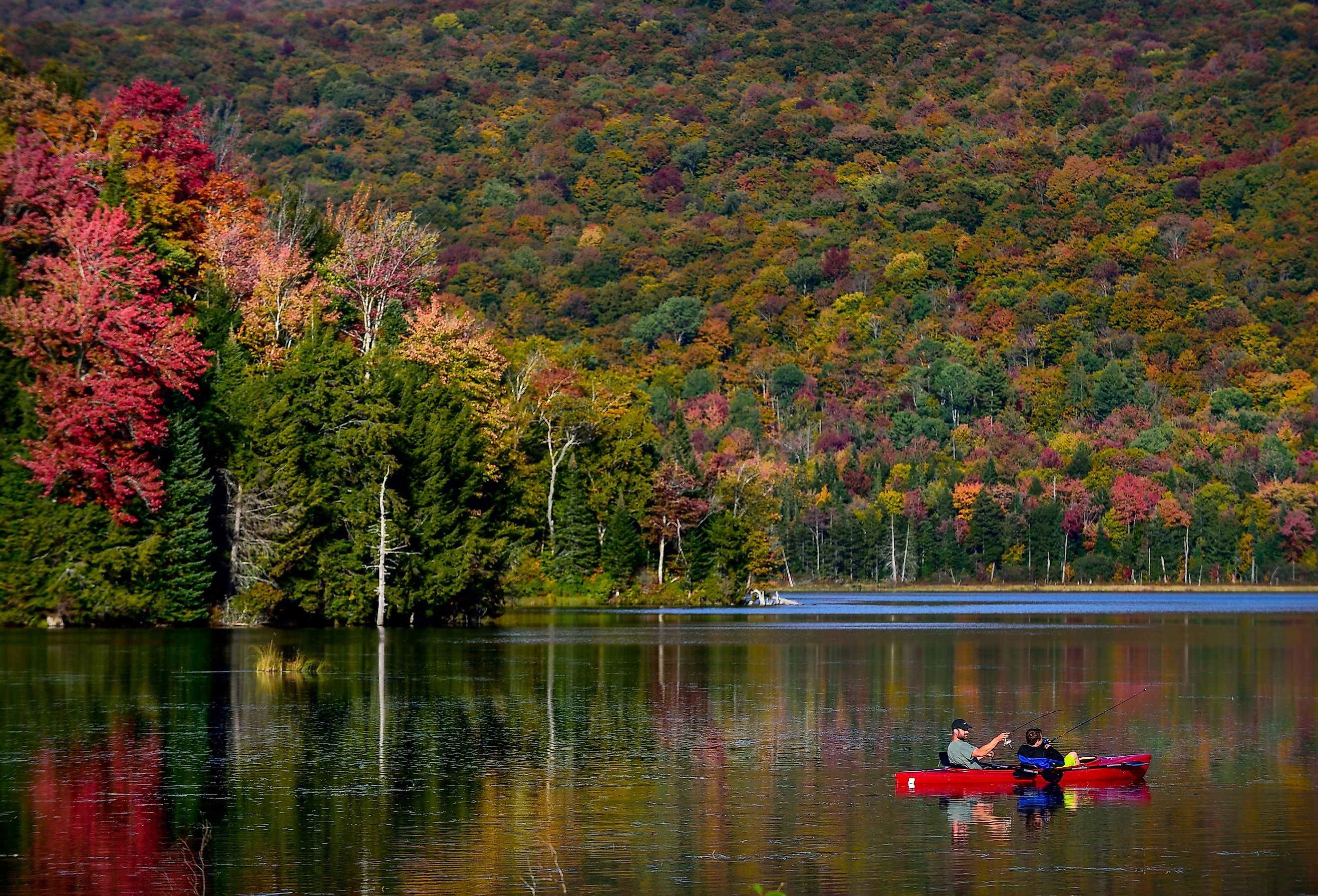
Lake Eden, Vermont
Lake Eden is a body of water in Lamoille County, which lies along Vermont's Route 100, which shares its name with the nearby town of Eden, and the village of Eden Mills, which sits on its shore. The lake is relatively small but is home to a local recreation area, as well as a Scouts reservation. It is a very small lake, lying a distance south of the Green Mountains and directly southwest of Mount Norris. To the east of the lake is the Wild Branch Wildlife Management Area.
Geography of Lake Eden
Lake Eden is a very small lake, with a long peninsula dividing it down the middle. It lies in the far north of Vermont, close to the border with Quebec, Canada. At its deepest, the lake is about 40 feet deep, but it averages a depth of 15 feet. It has a surface area of 198 acres or 0.3 square miles, and it sits 1233 feet above sea level.
Ecology of Lake Eden
The lake supports fishing in the spring, summer, and autumn, as well as ice fishing in the winter. Some fish known to live in the lake include smallmouth bass, brown trout, and chain pickerel, to name only a few. These fish are also the prey of local fish-eating birds, such as great egrets, belted kingfishers, green herons, hawks, loons, and even bald eagles. It should also be noted that this lake does not permit hunting of waterfowl. Wild turkeys also roam the area, as do deer and even moose. The area has numerous nature and wildlife preserves, including the Babcock Nature Preserve and the Green River Reservoir State Park. As a result, anything from bears, mountain lions, coyotes, and lynxes are also known to call this place home. The Babcock Nature Preserve, in particular, is used by the Johnson State College as a site to teach courses in field biology, field ornithology, and geology due to how geographically and ecologically significant the region is.
Climate of Lake Eden
This region possesses a temperate continental climate, but being so far north, it generally experiences a slightly lower annual mean temperature than similar regions within the same climate zone, even throughout summer. Much like Quebec, northern Vermont receives colder, frigid winters with more snow. In fact, town residents claim that it's typical for them to receive their first snowfall before Halloween!
Brief History of Lake Eden
On August 28th, 1781, a charter was penned by Governor Thomas Chittenden, which sought to hand over 36 square miles to 72 of the "Green Mountain Boys," a militia that fought in the Revolutionary War. However, local historians of the town's heritage have found that none of the intended veterans ever settled in the area and that the town's development didn't begin until sometime after the year 1800. From 1936 to 1993, an asbestos mine was in operation on the nearby Belvidere mountain, which left a shocking 3.5 million cubic yards of mill tailings in the region. A 2009 study by the state found that the local groundwater had been, unsurprisingly, contaminated by the discarded waste, resulting in an increased risk of asbestos-related illness compared to the rest of Vermont for everyone within ten square miles of the former mine.
Lake Eden Today
Despite the contamination from the asbestos industry, Lake Eden remains a beloved recreation site for locals. In the fall, beachside RV sites at the Lake Eden recreational area are given away via lottery to locals wishing to spend the summer on the lake's shore. If any season-long RV sites remain after the initial lottery, the remainder are raffled away in spring. Lovers of the outdoors get up to all sorts of activities in the region all year round. Canoers, kayakers, hikers, cyclists, hunters, fishers, skiers, snowmobilers, and even dog-sledders all find ways to enjoy themselves here. As a result, Lake Eden is a quaint but dynamic recreational paradise.










